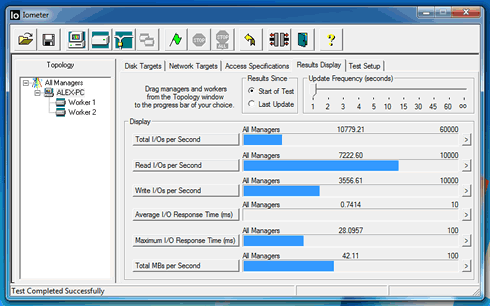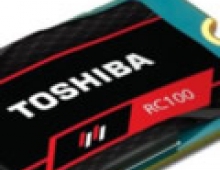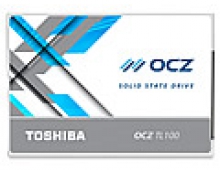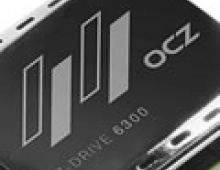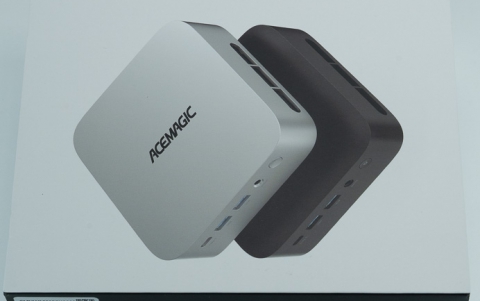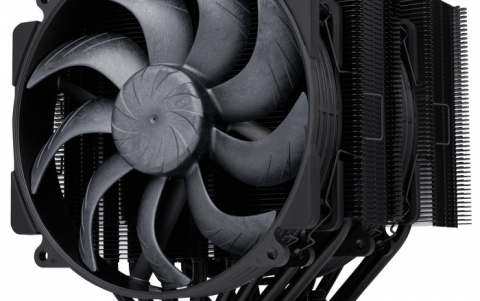OCZ Vertex 2 60GB SSD review
4. Benchmarks
Here is our testbed:
- Motherboard: Asus Stiker II Extreme Bios 1403 (Nvidia 790i Ultra SLI)
- Processor: Intel Q9300 (Quad Core @ 2.50GHz)
- Case: Open Air testbed
- Power Supply: OCZ GameXStream GXS600 SLI-Ready
- Memory: 2x1GB Supertalent DDR3-1600 (1333MHz@ 7-7-7-20-1T)
- HDD: Seagate 7200.12 500GB SATA2 7200RPM
- Monitor: LG L246WH-BH 24"
- Windows 7 32bit with all the latest updates installed
The SSD was not used as a boot drive, so we did not perform any kind of optimizations for the operating system. The "enable advanced performance" option was selected under the device's properties (OS). For the tests, we used the following software leaving their settings to defaults:
- HDTachRW v3.0.1.0
- HD Tune v4.50 Pro
- Crystal DiskMark v3
- ATTO Disk Benchmark v2.46
- ASS SSD Benchmark 1.5xxx
- IOMeter v2006.07.27 with Xtreme Benchmark template
We start the tests with the HDTachRW software. HD Tach is a low level hardware benchmark for random access read/write storage devices. The software measures the sequential read speed (at various points on the device), the random access speed and sequential write speed. We selected the full benchmark.
The software reported an average sequential writing speed of 176 MB/s and a sequential reading of 234.5 MB/s:
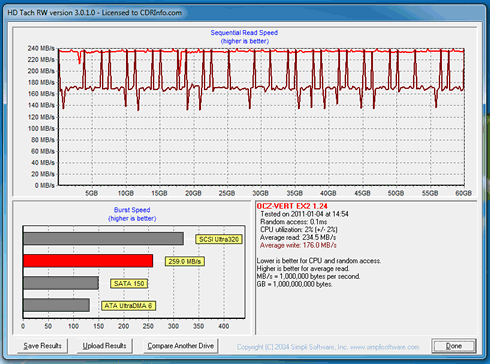
The HD Tune Pro software is also a utility we used to measure the drive's reading performance. Although not necessarily representative of real-world workloads, HD Tune's targeted tests give us a glimpse of each drive's raw capabilities. This time we got a 218.4MB/sec speed for sequential read and 162.2 MB/s for writing:


The next software we used was the ATTO Disk Benchmark. The tool measures storage systems performance with various transfer sizes and test lengths for reads and writes. The benchmark performs file transfers ranging from 0.5 KB to 8192 KB. Again the drive scored very well in both reading and writing tasks, at an average 265 MB/s for write and 278 MB/s for read , depending on the file size, in Queue Depth 4:
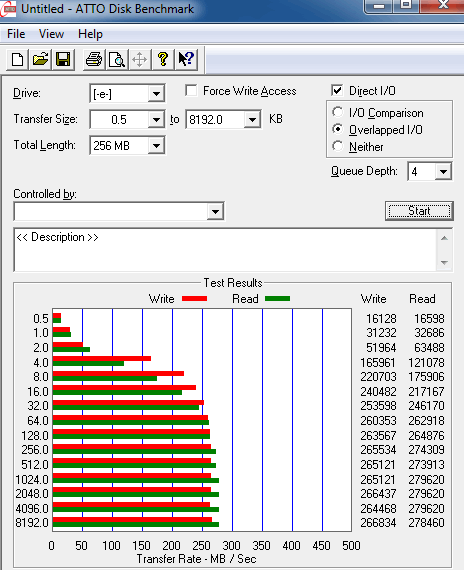
The next benchmark is the CrystalDiskMark. The software provides throughput data based on sequential reads and writes, and random (512K/4K/4KQD32) reads and writes. We've used the default 1,000MB file-size for the tests.
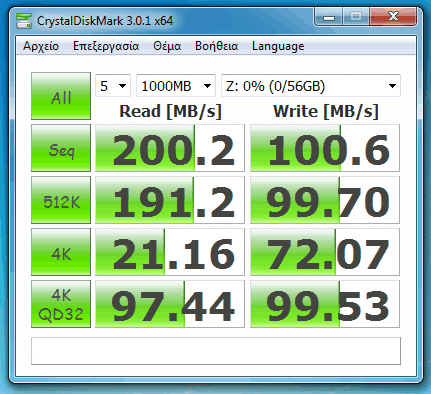
The drive scores 174 points at the AS SSD Benchmark
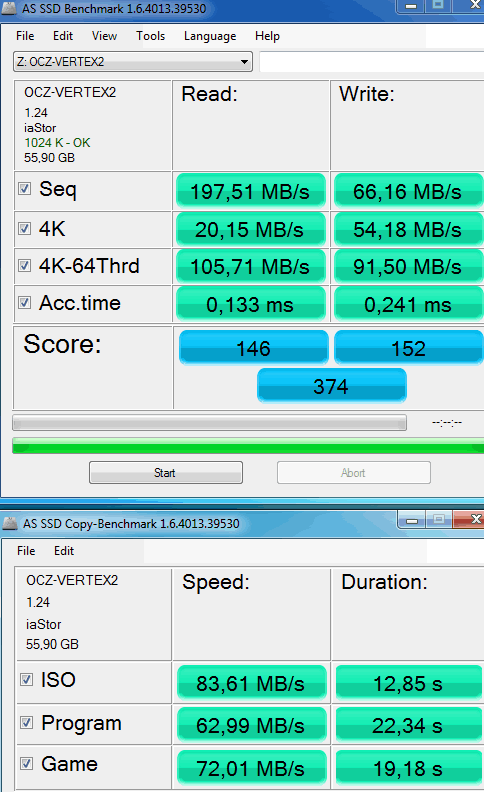
Finally, we proceed to the most important benchmark of the test, the IOMeter. Iometer is run by using workstation and database patterns for queue depths (outstanding I/Os) of two and 32, representing very light and moderate loads. Iometer is both a workload generator (that is, it performs I/O operations in order to stress the system) and a measurement tool (that is, it examines and records the performance of its I/O operations and their impact on the system). The app's ability to bombard drives with an escalating number of concurrent IO requests also does a nice job of simulating the sort of demanding multi-user environments that are common in enterprise applications. It can be used for measurement of the performance of an SSD. We run the IOMeter tests using the Xtreme Benchmark template . Here are the results:
